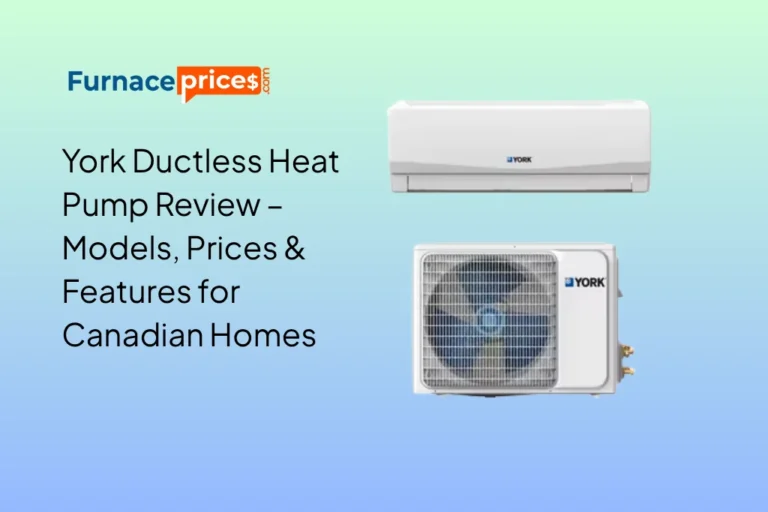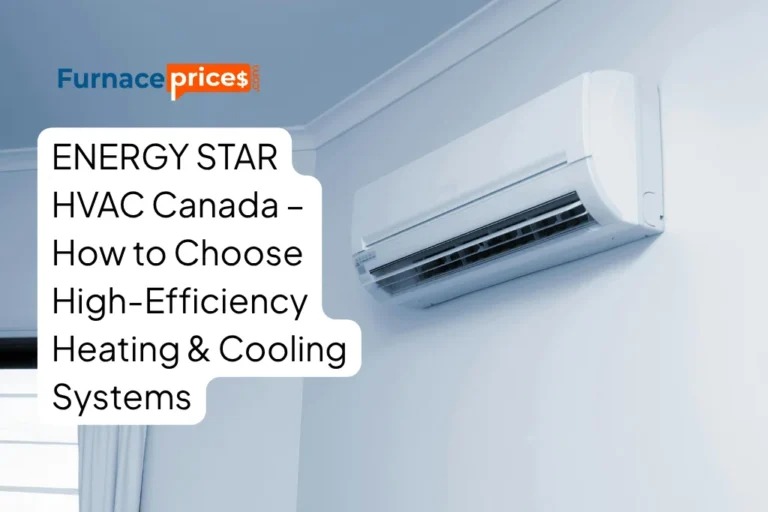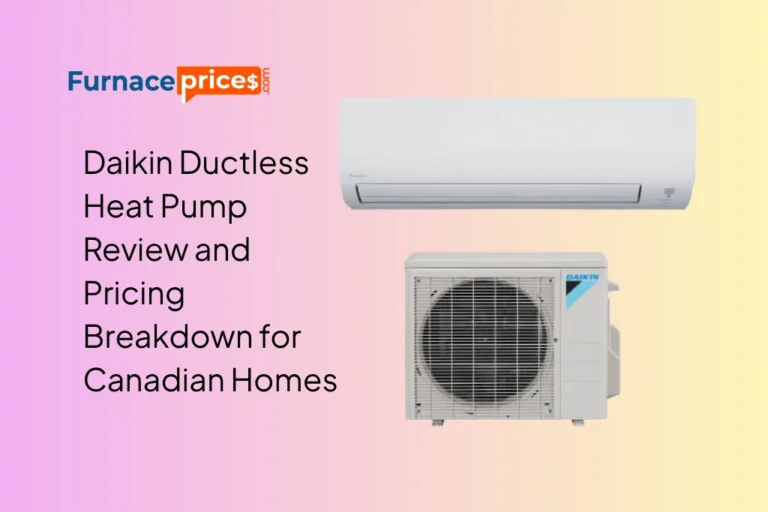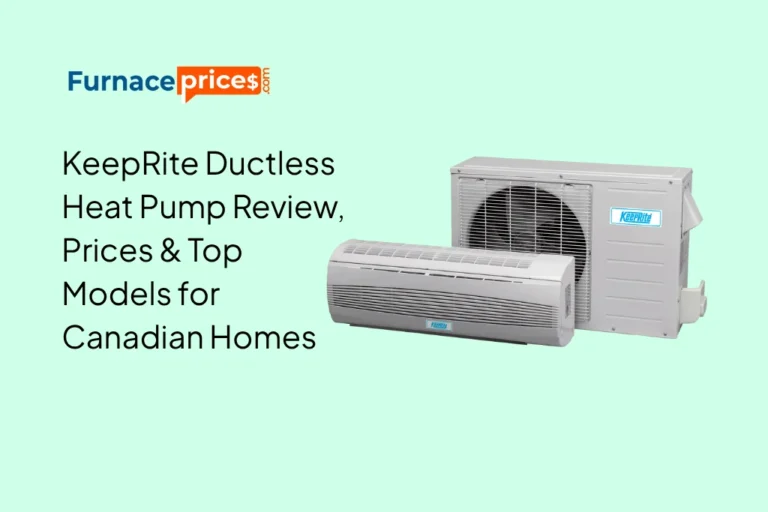Heat Pump vs. Furnace: Which Heating System Is Right for Your Home?
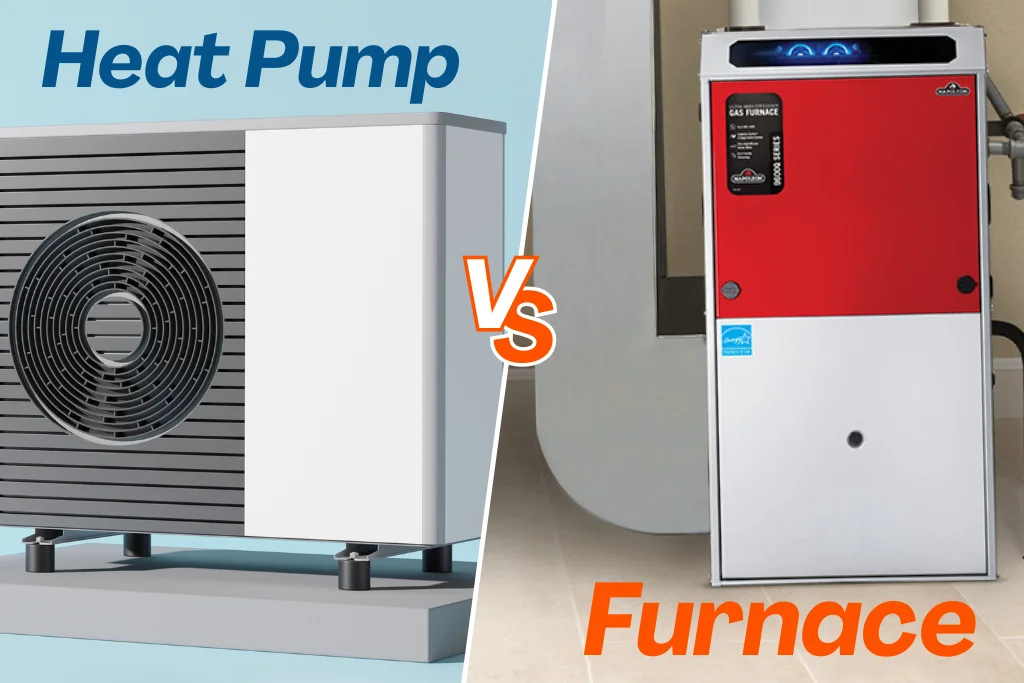
When the cold hits, choosing the right heating solution can make all the difference. Let’s explore how heat pumps and furnaces compare—and which might best suit your home.
🔧 How Do Furnaces Work?
Furnaces are one of the most common heating systems in North America, with over 77 million units installed. They operate using fuel sources like natural gas, propane, oil, or electricity, and are available in a variety of models and brands.
Most furnaces work by igniting a burner inside a chamber. A blower fan pushes air through the heated chamber, and the warm air is circulated throughout your home via ducts. Electric furnaces, meanwhile, use a heated coil instead of a burner.
With routine maintenance and filter replacements, a well-kept furnace can last 15 to 20 years, delivering reliable warmth even in sub-zero temperatures.
🌬️ How Do Heat Pumps Work?
Unlike furnaces, heat pumps don’t generate heat—they transfer it. They extract warmth from the outside air (even in cold conditions) and circulate it indoors. In the summer, this process reverses to function like an air conditioner, moving heat from inside to outside.
Heat pumps serve multiple roles: heating, cooling, filtering, and dehumidifying—all with a single system. Popular models include air-source heat pumps and geothermal heat pumps that draw heat from the ground or water. Modern heat pumps are engineered to work efficiently even in extreme cold, and many models don’t require duct work, making them ideal for ductless mini-split systems or older homes.
✅ Pros and Cons: Furnaces vs. Heat Pumps
Let’s break down the key benefits and drawbacks of each system.
✅ Furnace Advantages
- Lower upfront installation cost
- Quick heating performance
- Familiar heating feel
- Works with existing ductwork and fuel lines
- Available in gas, electric, propane, and oil models
- Reliable in extreme winter conditions
❌ Furnace Drawbacks
- Consumes more energy than heat pumps
- Requires ductwork (expensive if not pre-installed)
- Needs regular maintenance for safety and efficiency
- Can circulate dust and allergens
- Doesn’t provide cooling, filtering, or humidity control
Risk of carbon monoxide in gas/oil systems
✅ Heat Pump Advantages
- All-in-one heating and cooling system
- Energy-efficient (2–4x more efficient than electric furnaces)
- Minimal maintenance (annual servicing)
- Eligible for rebates or tax credits
- No fossil fuels = no carbon monoxide risk
- Works well without ductwork (mini-split options)
❌ Heat Pump Limitations
- Higher upfront cost than furnaces
- May need backup heat in extreme cold (below -23°C / -10°F)
Performance drops in freezing temperatures
🏡 Choosing Between a Heat Pump and a Furnace
Here are some things to consider when choosing your next heating system:
You Might Prefer a Furnace If:
- Your home already has ducts and gas lines
- You want lower installation costs
- You don’t need built-in air conditioning
- You’re comfortable maintaining a furnace
- You like dry, warm air for winters
- You’re not eligible for heat pump rebates
A Heat Pump May Be Better If:
- You want one system for heating and cooling
- Your home has no ductwork or uses mini-splits
- You’re aiming for energy savings and low environmental impact
- You qualify for rebates
- You live in a milder climate (or have backup heat)
- You want zone control (heat/cool different rooms independently)
🔄 Can You Replace a Furnace With a Heat Pump?
Yes. Most homes can upgrade from a traditional furnace to a heat pump. Heat pumps can work with or without ducts, giving them more flexibility for installation. Replacing a heat pump with a furnace may be harder if your home lacks existing ductwork or fuel lines.
Before switching systems, consult an HVAC expert to assess your home’s layout, insulation, and heating requirements.
📝 Final Thoughts
Your home’s ideal heating solution depends on budget, climate, infrastructure, and personal preferences.
Choose a furnace if you value lower upfront costs and powerful heating. Go with a heat pump if you want all-in-one comfort, lower energy bills, and modern efficiency.
👉 Need help deciding? Contact FurnacePrices.com today for expert guidance and personalized recommendations!
Looking for the Best Furnace or AC Prices in Ontario?
At FurnacePrices.com, we help homeowners in Hamilton, Burlington, Brantford, Cambridge, Kitchener, Milton, Oakville, and surrounding areas connect with trusted HVAC professionals.
Easily compare quotes, read verified reviews, and choose the right expert for your heating or cooling needs — all in one convenient platform.
📞 Have questions? Contact us or email us at contact@furnaceprices.com.
✅ Start comparing today and make the right choice with confidence!
💬 Heat Pump vs. Furnace: FAQs
Electric furnaces are simple and low-cost to install but aren’t as efficient as heat pumps. Over time, energy costs may be higher.
No. Heat pumps run entirely on electricity and don’t require natural gas, propane, or oil.
In very cold regions, heat pumps may need a supplemental heater. Many models include built-in electric backup heat.
Yes. Thanks to their high efficiency, heat pumps can be up to 4x cheaper to run than gas or electric furnaces, depending on local energy rates.
No. Heat pumps provide both heating and cooling, making separate air conditioners unnecessary in most homes.
Heat pumps tend to be quieter than gas furnaces, which may produce more noise through expanding ducts and burners.



